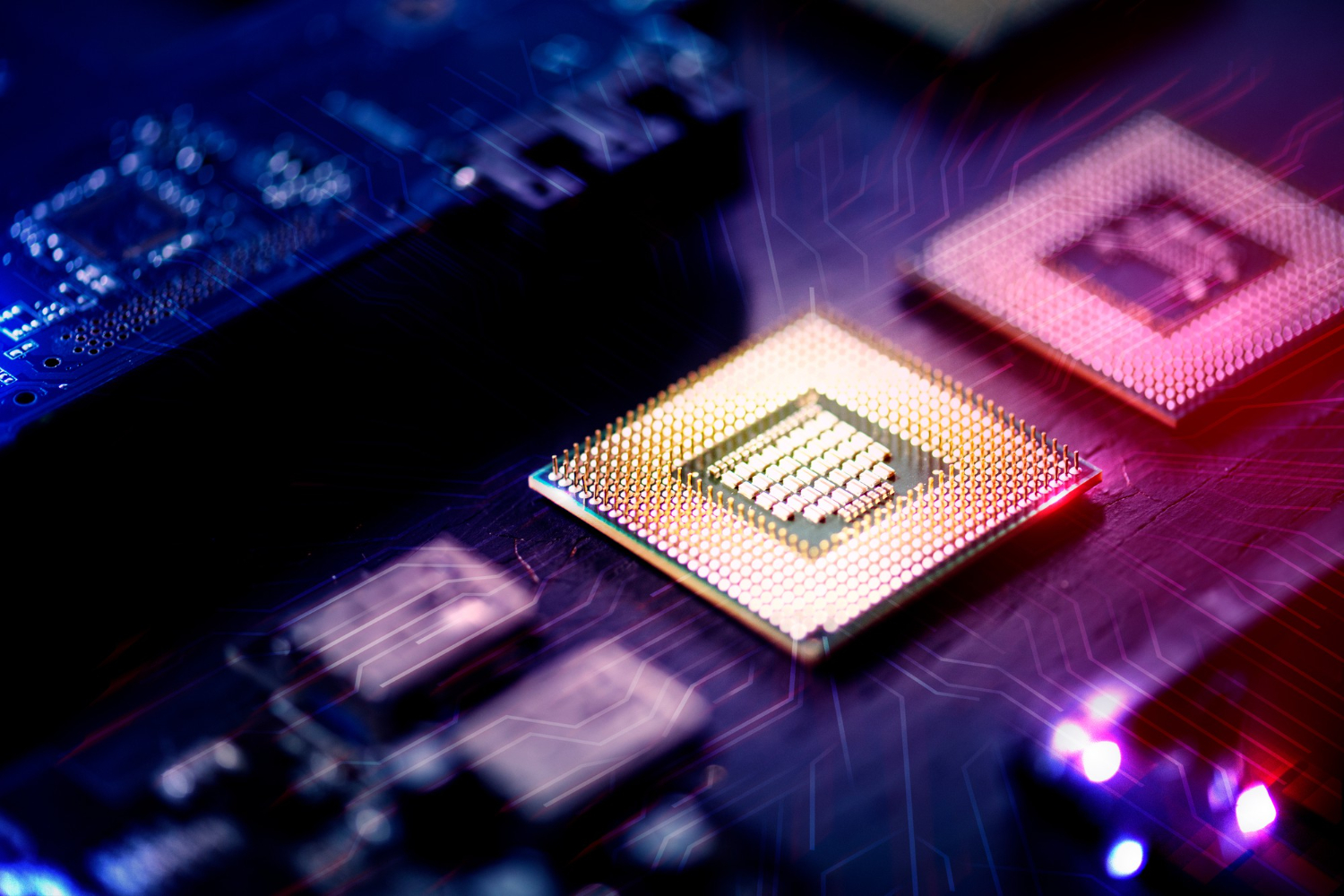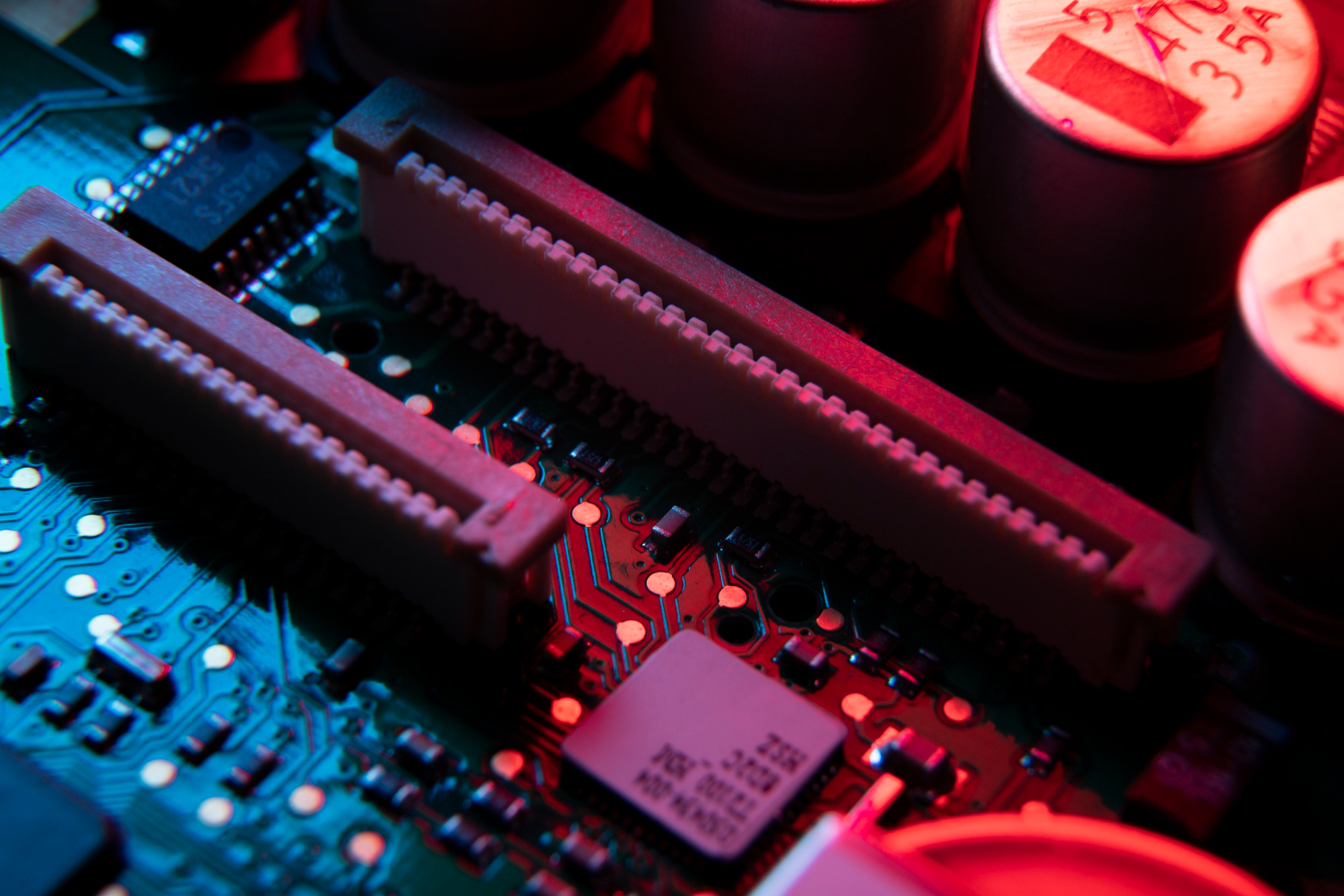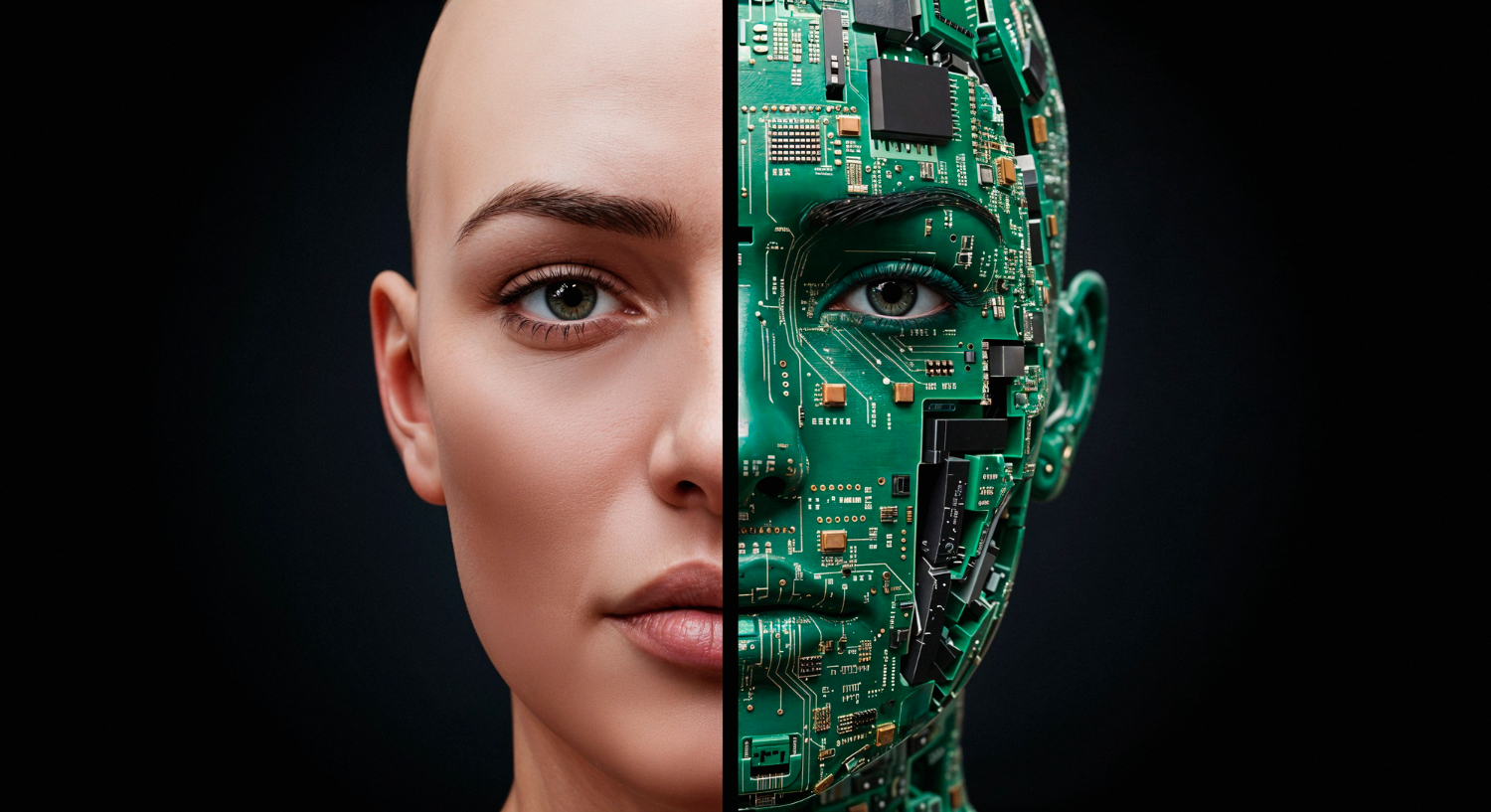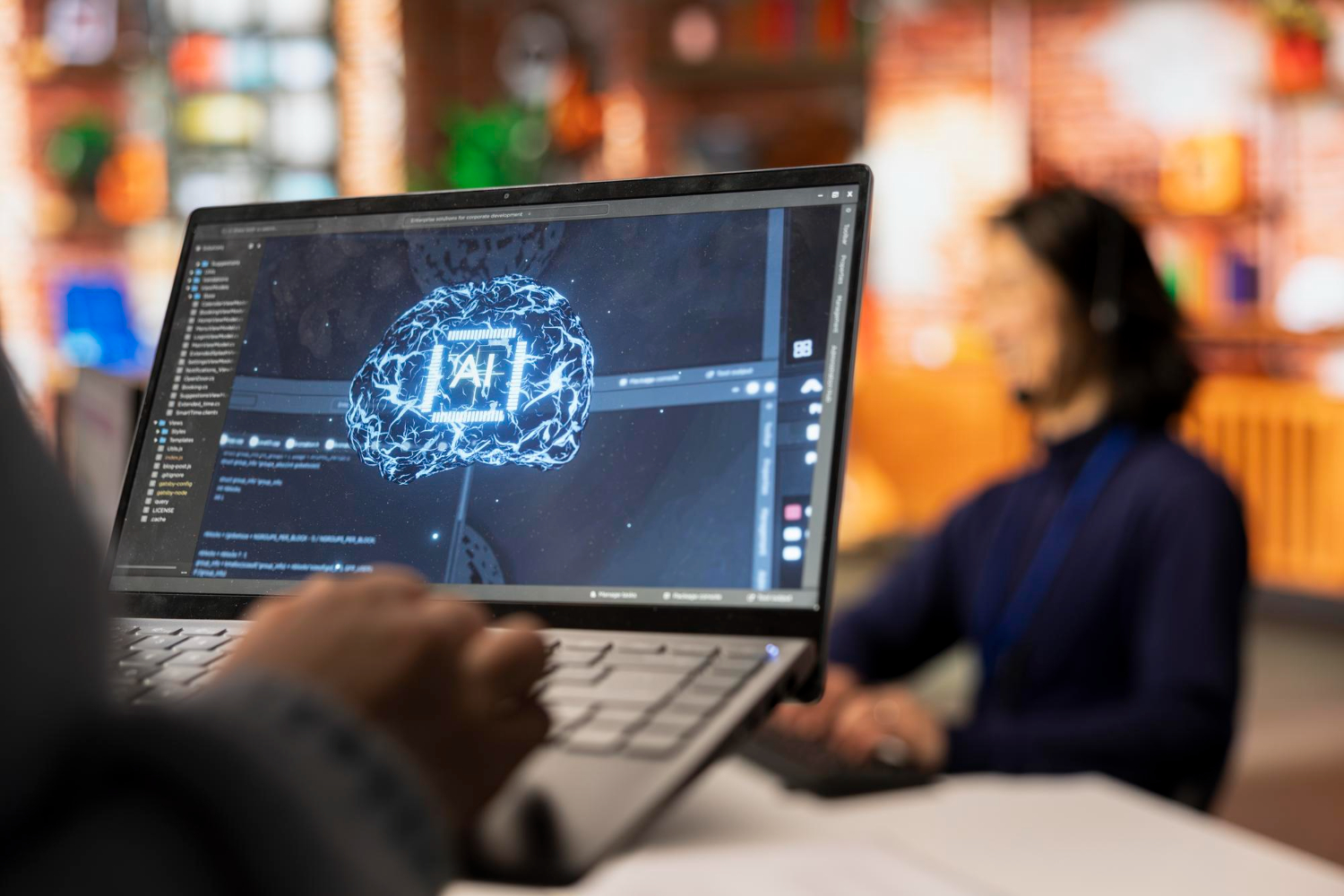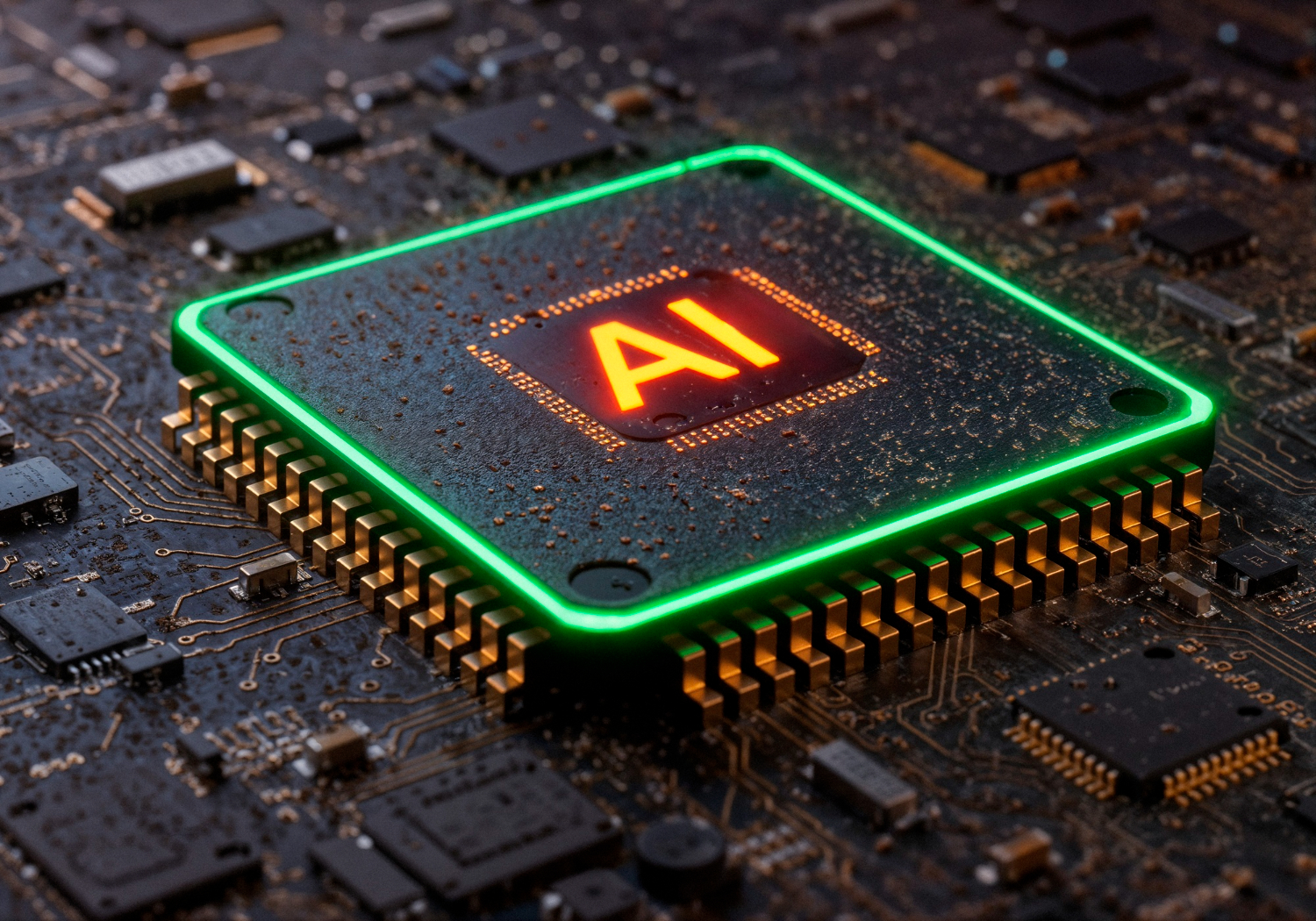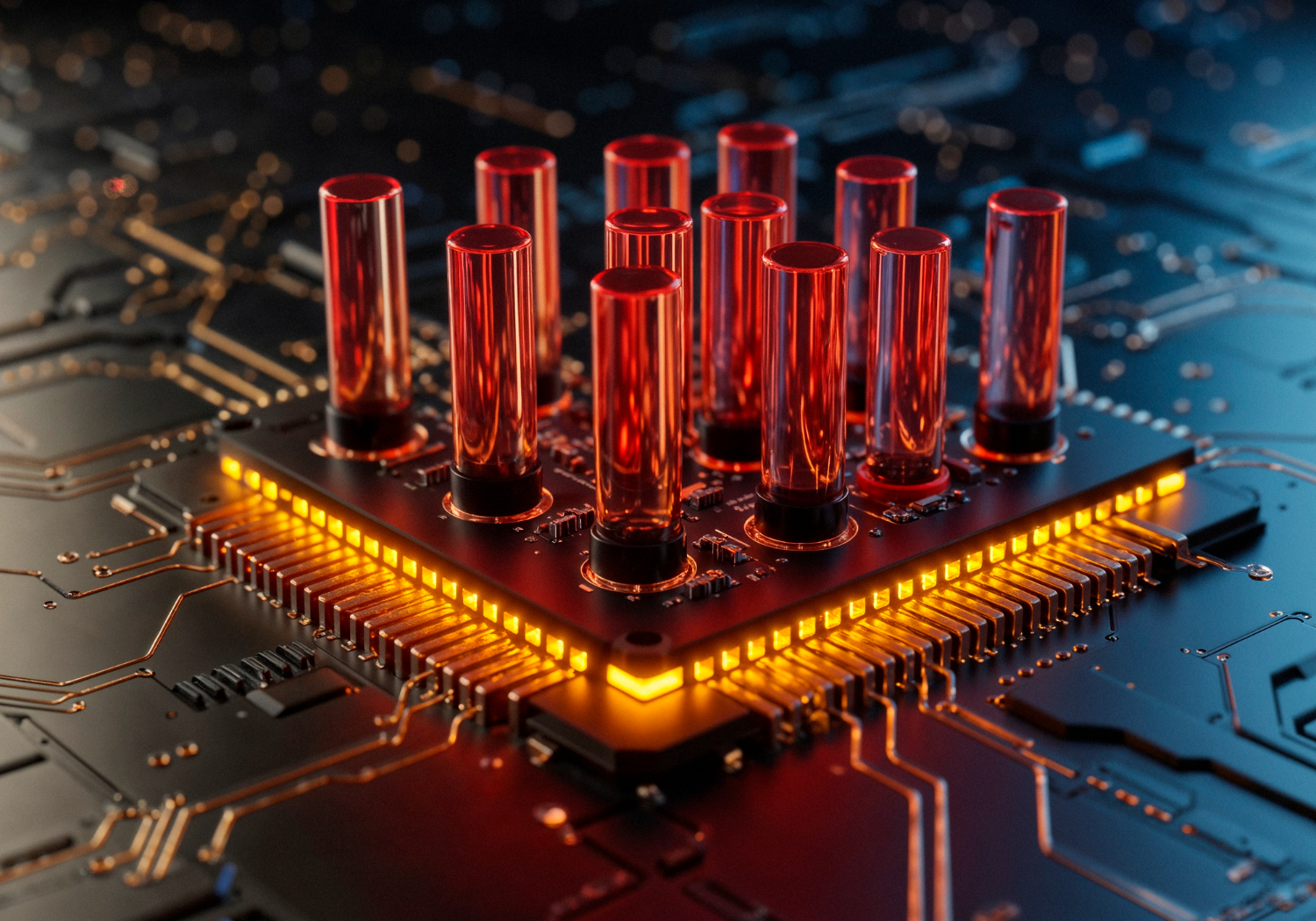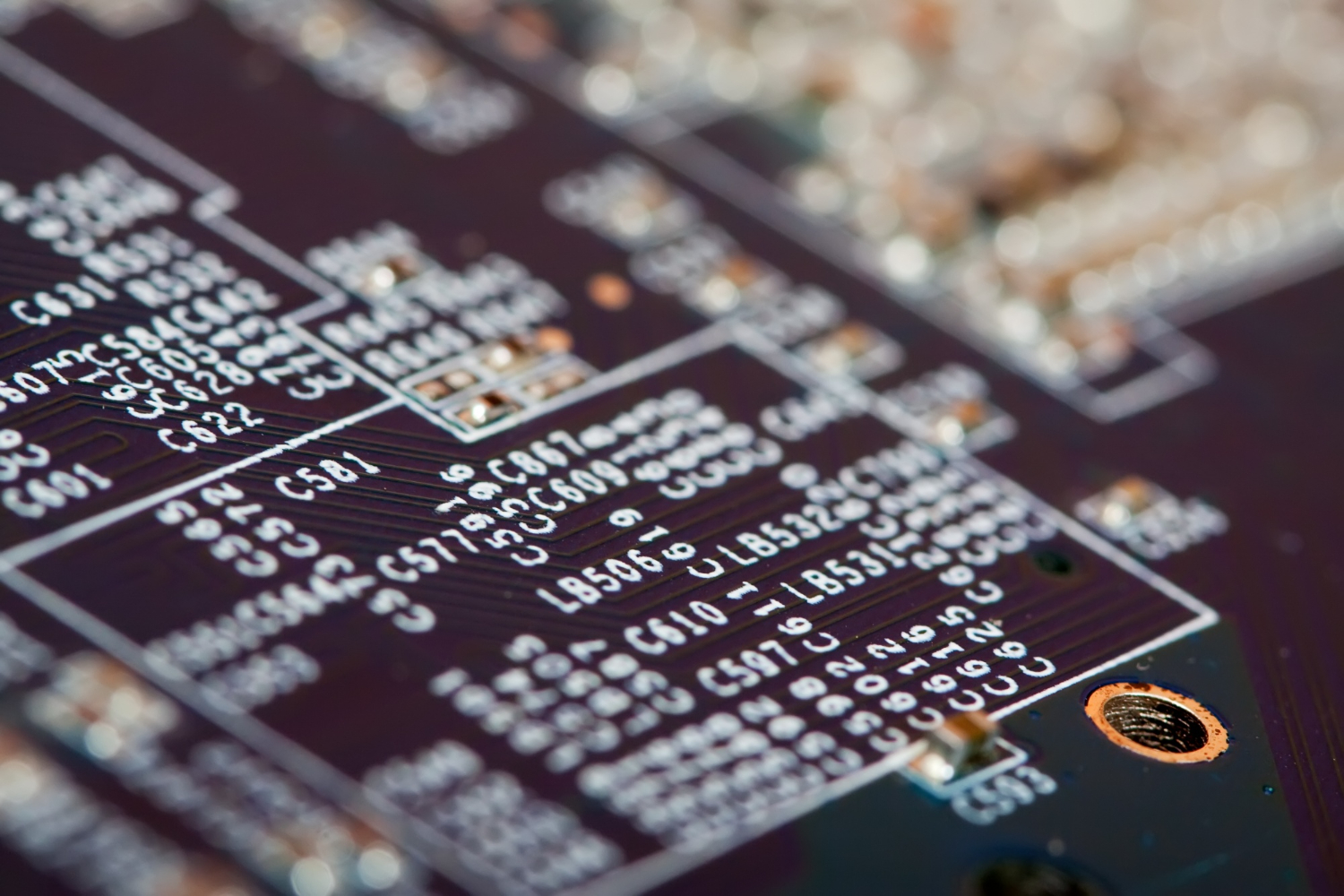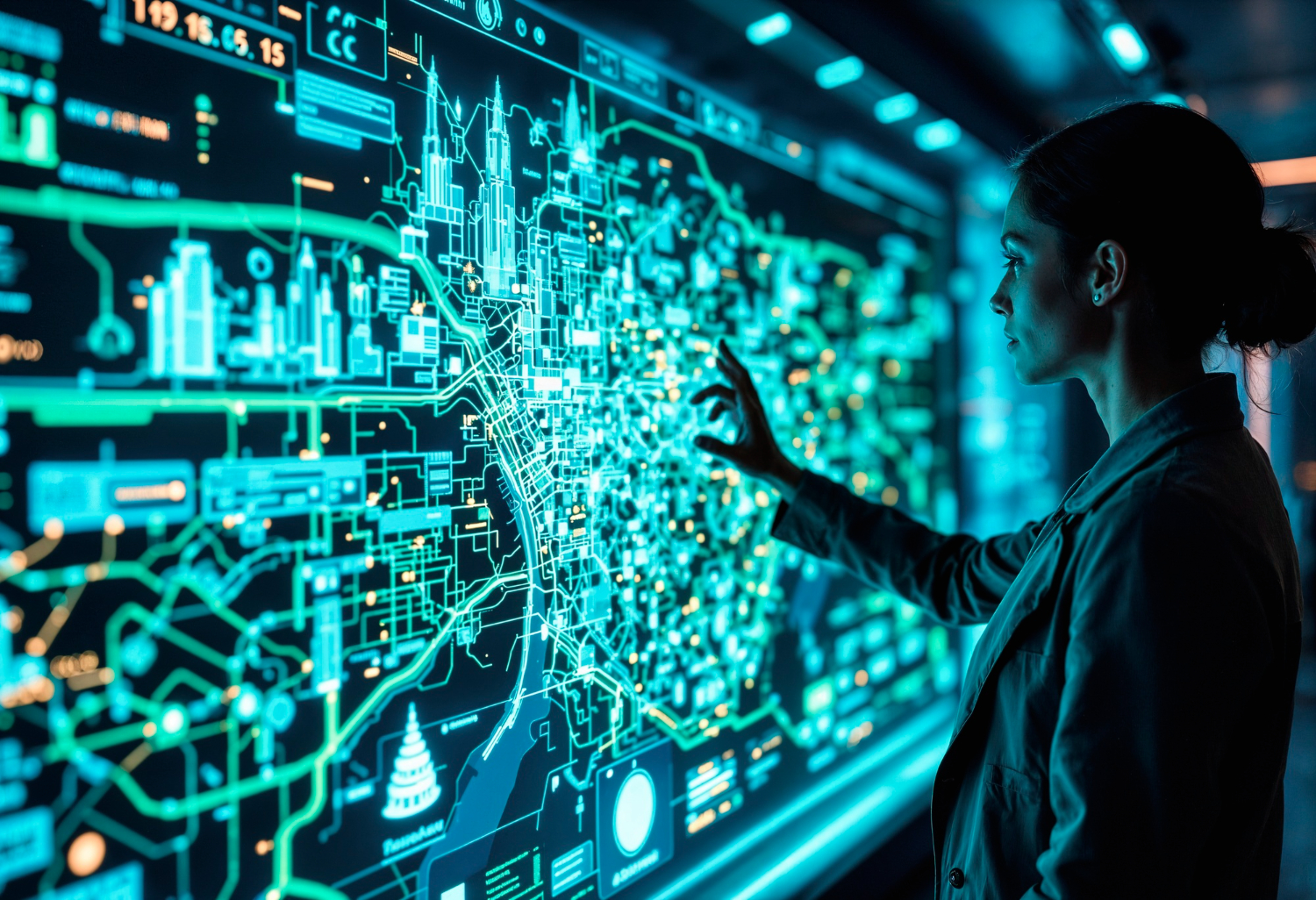Introduction
Artificial intelligence (AI) is rapidly transforming industries worldwide, from healthcare and finance to entertainment and transportation. Its influence is now spreading to sports, changing how athletes train and compete, as well as how fans experience the game.
AI is empowering teams and athletes with valuable insights, leading to enhanced performance and strategic decision-making. Additionally, AI is transforming fan engagement, creating personalised experiences and fostering deeper connections with their favourite teams and sports.
With a compound annual growth rate (CAGR) of 30.1% from 2021 to 2030, the global AI market for sports is projected to reach $29.7 billion by 2033, up from an estimated $2.2 billion in 2022 (Allied Market Research, 2024).
The evolution of sports through AI is still in its early stages, and the possibilities for a transformed landscape are truly thrilling.

AI Applications in Sports
I. Player Performance Analysis and Optimization Powered by AI

A. Computer Vision (CV): Seeing Beyond the Game
CV acts as the eyes of AI in sports analysis. It analyses video footage, extracting valuable insights into player movement, technique, and tactics. For Example,
-
In Baseball: CV can analyse a pitcher’s throwing motion, pinpointing potential areas for improvement in arm mechanics to prevent strain or optimise release points for increased throwing velocity.
-
In Football: CV can assess a running back’s footwork, evaluating agility and efficiency to identify areas for improvement and reduce the risk of injury.
B. Beyond the Surface: Wearable Sensors and Data Analytics
While CV offers a visual perspective, wearable sensors delve deeper, capturing real-time physiological data. These sensors, like heart rate monitors and GPS trackers, provide valuable insights when analysed by AI algorithms powered by GPU acceleration (powerful computing processors). This data allows for:
-
Monitoring: Tracking physiological parameters like heart rate variability and workload to prevent overtraining and optimise player performance for peak conditioning.
-
Injury Prediction: By analysing historical data and real-time sensor readings, AI can predict potential injuries before they occur, allowing for preventive measures and faster recovery times.
By combining the power of computer vision and data analytics, AI is transforming how athletes train, compete, and ultimately, achieve peak performance.
II. Injury Prevention and Rehabilitation

The combination of AI and IoT edge computing creates a potent force for injury prevention and rehabilitation in sports. By analysing:
Historical Data:
Player data from wearables, medical history, and other sources helps identify patterns and potential risk factors.
Real-Time Readings:
Wearable sensors gather data during training and competition, allowing AI to monitor potential red flags in real time.
This data empowers AI to predict potential injuries, allowing coaches and medical staff to take preventive measures. Additionally, AI can personalise rehabilitation programs based on individual needs and injury severity, optimising recovery times and minimising the risk of re-injury. This proactive approach to injury management is fostering a safer and healthier environment for athletes.
Real-life Use Case: Kineon’s MOVE+ Pro
Kineon’s MOVE+ Pro uses next-generation laser therapy to relieve pain, reduce inflammation, and stimulate tissue healing for faster recovery. This innovative technology provides a non-invasive and scientifically proven approach to injury rehabilitation, allowing athletes to get back on the field quicker.

III. Training Optimisation and Personalisation

AI takes player performance to the next level by analysing data from various sources like CV, wearables, and performance history. By crunching the data from all these, AI can provide:
Personalised Training
Tailored programs are designed to address individual weaknesses and focus on specific skill improvement, allowing athletes to reach their full potential.
Optimal Intensity
AI strikes a balance between pushing players and ensuring proper recovery. It analyses data to determine the optimal training intensity, minimising injury risk while maximising performance gains.
Practice using Generative AI
Beyond traditional methods, the emergence of Generative AI opens exciting possibilities. It can create synthetic training scenarios, such as simulating game situations for athletes to practise decision-making in controlled environments, enhancing their preparedness for real-world competition.
With personalised training and innovative tools like synthetic simulations, AI is transforming how athletes train, maximising their potential and pushing the boundaries of human performance.
IV. AI and Fan Engagement

AI is ushering in a new era of fan engagement, offering innovative ways to experience the game. This exciting shift focuses on creating a more personalised and engaging experience through various avenues:
Natural Language Processing (NLP) chatbots
It’s like having a virtual assistant at your fingertips, ready to answer your questions about players, stats, or game schedules in real time. NLP-powered chatbots provide personalised information, enhancing the overall fan experience by offering a convenient and interactive way to engage with the sport.
Goodbye generic content, hello tailored recommendations
Generative AI analyses your preferences and recommends personalised content, be it highlight reels featuring your favourite players or game statistics tailored to your interests. This fosters deeper engagement and strengthens the connection between fans and their teams.
Step into the game with AI-powered VR
The future of fan engagement is immersive. By leveraging AI, virtual reality experiences can transport fans into simulated game environments, allowing them to participate virtually alongside their favourite players. This innovative approach fosters a deeper emotional connection to the sport, creating a truly unforgettable experience.
These AI-driven advancements offer a win-win situation for both fans and sports organisations. Fans benefit from personalised experiences, deeper connections to the sport, and an overall sense of being valued. For organisations, AI translates to increased fan loyalty, potential revenue growth through enhanced fan engagement, and a competitive edge in attracting and retaining a passionate fan base. As AI continues to evolve, the possibilities for transforming fan engagement are truly limitless.
The Benefits of Incorporating AI in Sports
While AI has already made significant strides in sports, its potential for future advancements is truly vast. Here, we explore some exciting possibilities:
- Coaches can make decisions powered by AI insights
Real-time analysis of opponent strategies, player fatigue levels, and even potential play outcomes based on historical data and AI simulations become commonplace. Armed with this information, coaches can make informed decisions in real time, leading to more dynamic and unpredictable games.
- Officiating can become more accurate and consistent
AI-powered officiating systems can analyse player movements and game situations with greater accuracy than human referees. This could significantly reduce officiating errors, improve fairness in the game, and free human referees to focus on subjective calls requiring human intuition.
Goal-Line Technology (GLT) was introduced by FIFA World Cup 2012 in Japan to help referees analyse goals. This was a path-breaking move at the time (Chamoli, 2024).
- Fans can experience the game in new ways
AI-powered AR/VR technology allows fans to virtually attend games from anywhere, experiencing sights and sounds as if they were physically present. This immersive technology opens doors for real-time interaction with players and the environment, fostering a deeper connection to the sport.
- Players can train and recover like never before
Personalised training regimens based on individual data from wearables, performance history, and even genetic profiles become the norm. AI helps optimise training intensity, minimise injury risk, and create personalised recovery plans, leading to peak performance and faster recovery times.
- Fan engagement can reach new heights
AI personalised content, recommending highlight reels featuring favourite players, or curating news feeds based on interests. Interactive virtual communities foster deeper connections between fans and athletes, while AI-powered gamification allows fans to virtually participate in sporting events, making them feel like they are a part of the action.
- Scouting and player evaluation can be improved
AI algorithms analyse vast amounts of data to objectively evaluate player performance and identify potential talent. This can help teams discover hidden gems, optimise draft picks, and make informed player recruitment and trade decisions.
- Game and team strategy can get a data-driven boost
AI analyses past game data, opponent strengths and weaknesses, and even weather conditions to predict game outcomes and suggest optimal team strategies. This data-driven approach can help coaches develop winning strategies, improve team performance, and enhance the overall competitiveness of the sport.
However, this exciting future comes with the responsibility of ensuring ethical considerations are addressed.
Ethical Considerations: Navigating the Complexities of AI in Sports

While AI paints an exciting future for sports, ethical considerations loom large, demanding responsible development and implementation to ensure:
Fairness
AI Algorithmic bias can perpetuate existing inequalities in sports, potentially favouring certain athletes or teams based on factors outside their control. This underscores the need for fairness-aware AI development practices, including:
Diverse datasets
Training AI models on diverse datasets representing various ethnicities, genders, and playing styles helps mitigate bias.
Transparency in data collection and algorithm development
Disclosure of data sources and algorithm design allows stakeholders to identify and address potential biases.
Transparency
Without understanding how AI models analyse performance and inform decisions, athletes and teams can feel excluded and distrustful. To ensure transparency:
Explainable AI (XAI) techniques
These techniques enable stakeholders to understand how AI models arrive at their conclusions, fostering trust and acceptance.
Clear communication
Clear communication between developers, coaches, and athletes regarding AI’s role and limitations is crucial.
Player Privacy
Protecting player data and ensuring its responsible use is essential. The collection and use of player data raise concerns about potential misuse or breaches. To ensure responsible data handling, the following should be implemented:
Strong data security measures
Robust cybersecurity protocols and anonymising sensitive data are vital.
Player consent and control
Athletes should have control over how their data is collected, used, and shared, with clear opt-out mechanisms in place.
By prioritising these ethical considerations, we can ensure that AI serves as a powerful tool to enhance the overall sports experience for athletes, fans, and everyone involved, shaping the future of sports positively and responsibly.
TechnoLynx: Empowering the Future of Sports with AI
TechnoLynx is a leading provider of AI solutions, specialising in cutting-edge technologies like CV, NLP, GPU acceleration, and IoT edge computing. We are passionate about empowering sports organisations to transform how they operate, by:
Developing Custom AI models
We collaborate with your team to design and develop custom AI models tailored to your specific needs. This could include analysing player performance for training optimisation, or creating chatbots for enhanced fan engagement.
Seamless integration
We understand the importance of seamless integration with existing infrastructure. Our team of experts will integrate your AI solutions with your existing data pipelines and systems, ensuring a smooth and efficient transition.
Leveraging the Power of GPUs
Handling large sports data sets requires significant processing power. We leverage GPU acceleration to ensure your AI solutions operate efficiently, delivering insights in real time.
Ethical commitment
At TechnoLynx, we prioritise ethical considerations throughout the entire process. We are committed to ensuring the responsible development and implementation of AI solutions, upholding fairness, transparency, and player privacy.
With our expertise and experience, TechnoLynx is here to help you harness the power of AI and unlock the full potential of your organisation. We believe that AI can bring about a change in the sports industry, and we are excited to be a part of this journey with you. Contact us today to explore all the possibilities AI can bring into the world of Sports!
Conclusion
As AI continues to evolve, the possibilities are boundless. Whether you’re an athlete, coach, team executive, or simply a passionate fan, explore the potential of AI in your area of interest. It offers unprecedented insights and capabilities that benefit all.
TechnoLynx and Kineon are here to help you harness the power of AI and unlock its potential for your organisation. Let’s work together to change the future of sports and create an even more exciting and engaging experience for everyone involved.
References
- Allied Market Research. (2024, February 2). Artificial Intelligence in Sports Market Size: Forecast - 2032.
- Chamoli, S. (2024, January 16). AI in sports industry: Exploring the impact of AI in sports. OpenXcell.
- The Move+: Red light therapy to reduce pain & inflammation. Kineon. (n.d.).




